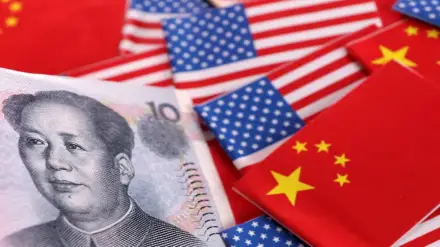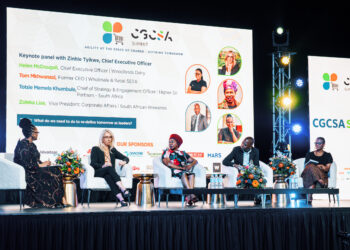As the US-China trade war intensifies, a surprising twist has emerged—not from politicians or economists, but from Chinese manufacturers on TikTok. Amid rising tariffs (with China recently imposing a 125% tariff on US imports in response to Donald Trump’s proposed 145% tariffs on Chinese goods), Chinese manufacturers are taking to social media to expose what really happens behind the scenes of global luxury brands.
A viral video by a Chinese OEM (original equipment manufacturer) that has produced items for brands like Gucci, Prada, and Louis Vuitton for over 30 years claimed: “There is nothing we haven’t made; we know the craft very well.” According to the video, up to 80% of luxury handbags, even those labeled “Made in Italy” or “Made in France”, are actually produced in Chinese factories.
This revelation has triggered a wave of consumer skepticism about luxury pricing and brand authenticity. Some videos even show how a $34,000 Birkin bag could be made for as little as $1,400, with most of the markup attributed purely to branding. As a result, more consumers, especially young, digital-savvy ones, are exploring the idea of buying directly from manufacturers to save money and avoid what they now view as unjustified luxury markups.
Beyond handbags, similar claims are being made about other goods: 42% of Chanel cosmetics, for instance, are reportedly produced by Chinese artisans. These insights are challenging long-held assumptions about quality, exclusivity, and national origin.
Meanwhile, the trade war is reshaping the global economy. The US has exempted consumer electronics like smartphones and laptops from some tariffs to protect tech giants like Apple, but that hasn’t stopped the growing public discourse. On the Chinese side, there are even talks of banning Hollywood films as another form of retaliation.
What This Means for Students and Global Consumers
For university students, especially those studying business, media, or international relations, this moment is a live case study in:
- Brand perception vs. production reality
- Global supply chain transparency
- The power of social media in reshaping consumer awareness
What was once a niche discussion about tariffs has now turned into a broader reevaluation of how we assign value to products, and how branding influences our buying decisions. In short, the trade war has done more than raise prices, it has sparked a cultural and economic reckoning around what luxury truly means.
















